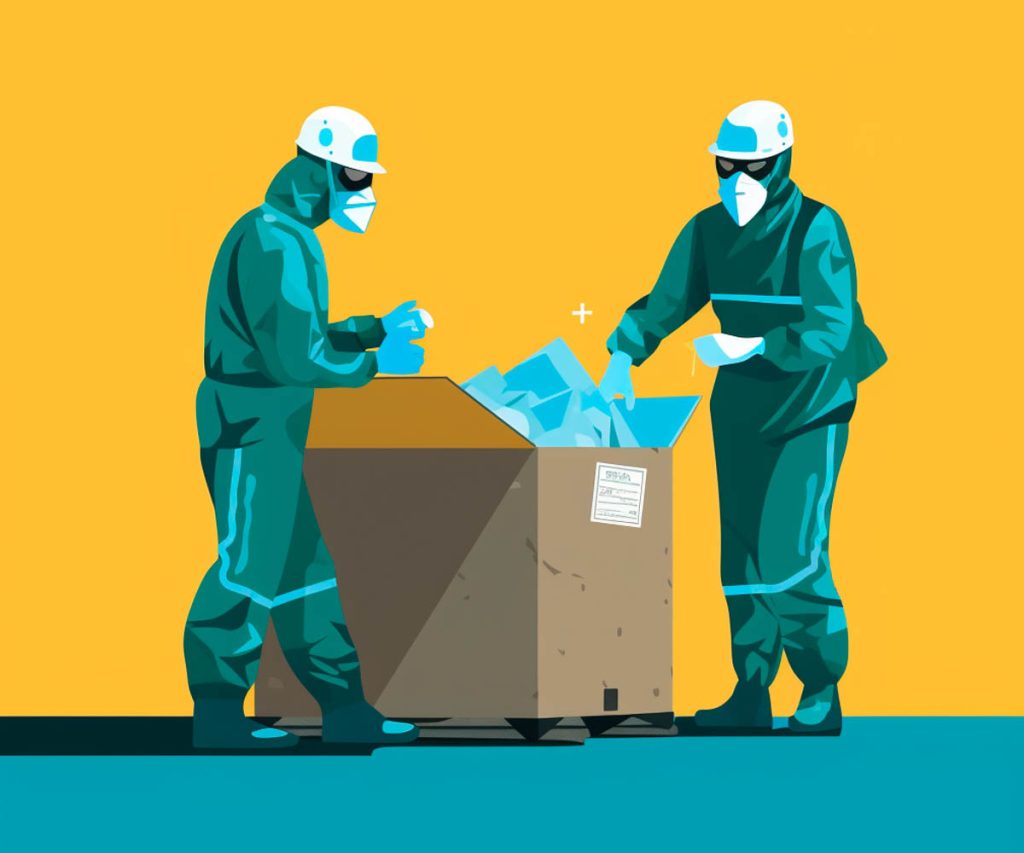Evaluating Old Lab Equipment

It’s important to check the condition of old lab equipment. We should confirm it works properly, can be repaired, and keep track of its status.
Assessing for Functionality and Safety
First, we need to see if the equipment works. We should turn it on, run it, and see if it performs as expected. If a machine fails to start, it might need minor fixes or major repairs.
Safety is also crucial. Check for any damaged parts, exposed wires, or signs of wear that could pose a hazard. Ensure all safety features, like emergency stops, are functional. In a lab, malfunctioning equipment can be dangerous, so addressing safety concerns is essential.
Determining Potential for Repair and Maintenance
After we assess functionality, we should see if the equipment can be fixed. Some older models might be harder to repair due to outdated parts. We should check manuals or manufacturer resources for guidance.
It’s important to evaluate the cost of repairs. Sometimes, fixing an old machine could be more expensive than buying a new one. Regular maintenance schedules can help keep equipment running longer. We should identify which parts need routine checks or replacements.
Cataloging and Tracking Equipment Status
Keeping track of the status of our lab equipment is necessary. We should create a list or database to record which items are working, which need repairs, and which are beyond repair. This helps in planning and budgeting for new purchases.
We should update the catalog regularly. This can include notes on the last maintenance date, issues found, and any repairs made. Using a digital system can make tracking easier. Proper cataloging ensures we always know the condition and availability of our equipment.
Disposal and Redistribution of Lab Equipment

Properly handling old lab equipment is crucial. We need to think about recycling materials, donating to schools and charities, selling items, and ensuring environmentally friendly disposal if necessary.
Recycling Electronics and Plastics
Many lab items, like electronics and plastic containers, can be recycled. We should check with local recycling centers about their policies for e-waste and plastics. It’s important to separate these materials correctly and follow any specific guidelines they have.
Recycling helps reduce waste going to landfills and conserves resources. Old electronics like computers, monitors, and lab instruments often have valuable components. Plastic lab ware like pipette tips and bottles can usually be processed into new items.
Donating to Educational Institutions and Charities
If lab equipment is still functional, donating it can be a great option. Many colleges, high schools, and charities are always in need of lab supplies. We can contact local schools and ask if they are interested.
There are also organizations that specialize in collecting and distributing used lab equipment to those in need. Donating helps support education and research in underfunded areas while preventing useful items from ending up in landfills.
Selling Through Resale Channels
Selling surplus equipment is another viable option. Many platforms exist for reselling used lab equipment. We can list items on websites dedicated to scientific equipment sales or reach out to companies that buy used lab supplies.
Selling allows us to recoup some costs and ensures that the equipment continues to be used. Resale channels can include online marketplaces, auctions, and specialized resellers.
Disposal in an Environmentally Friendly Manner
When equipment is too old or damaged to be reused or recycled, we must dispose of it responsibly. We should ensure that hazardous materials are handled according to regulations. It’s vital to prevent harmful substances from contaminating the environment.
Many electronic components contain materials that require special disposal methods. Environmentally friendly disposal often involves working with specialized waste management services to handle these items properly.
Compliance and Logistics in Equipment Transition
Transitioning lab equipment involves proper decontamination, ensuring safe reuse, and handling any sensitive data.
Decontamination Before Disposition
Before removing lab equipment, we must clean and decontaminate it. This ensures safety for anyone handling or relocating the equipment. Using appropriate PPE (Personal Protective Equipment) is crucial during this process. Decontamination involves cleaning with specific chemicals or heat treatments to eliminate contaminants.
We follow guidelines from agencies like OSHA to ensure compliance. Proper documentation of the decontamination process is important, as it might be required by institutions like schools or research organizations taking over the equipment.
Relocating Equipment for Reuse
When relocating equipment for reuse, planning is essential. We first assess the condition and functionality of the equipment. Relocation involves careful packing, removal, and transportation to the new site. Coordination with the receiving institution, like schools or labs, ensures a smooth transition.
Installation at the new location must follow specific protocols to avoid damage. We often involve skilled technicians familiar with the equipment to handle this process.
Handling Sensitive Information and Data
Lab equipment, especially computers and data storage devices, often contains sensitive information. Before transitioning, we must securely erase or transfer this data. Utilizing secure data removal methods, like data wiping tools or physical destruction, is critical.
It’s important to comply with privacy laws and institutional policies to protect any personal or research data. Detailed records of the data handling process help in maintaining compliance and addressing any future concerns.
I’m Cartez Augustus, a content creator based in Houston, Texas. Recently, I’ve been delving into different content marketing niches to achieve significant website growth. I enjoy experimenting with AI, SEO, and PPC. Creating content has been an exciting journey, enabling me to connect with individuals who possess a wealth of knowledge in these fields.

